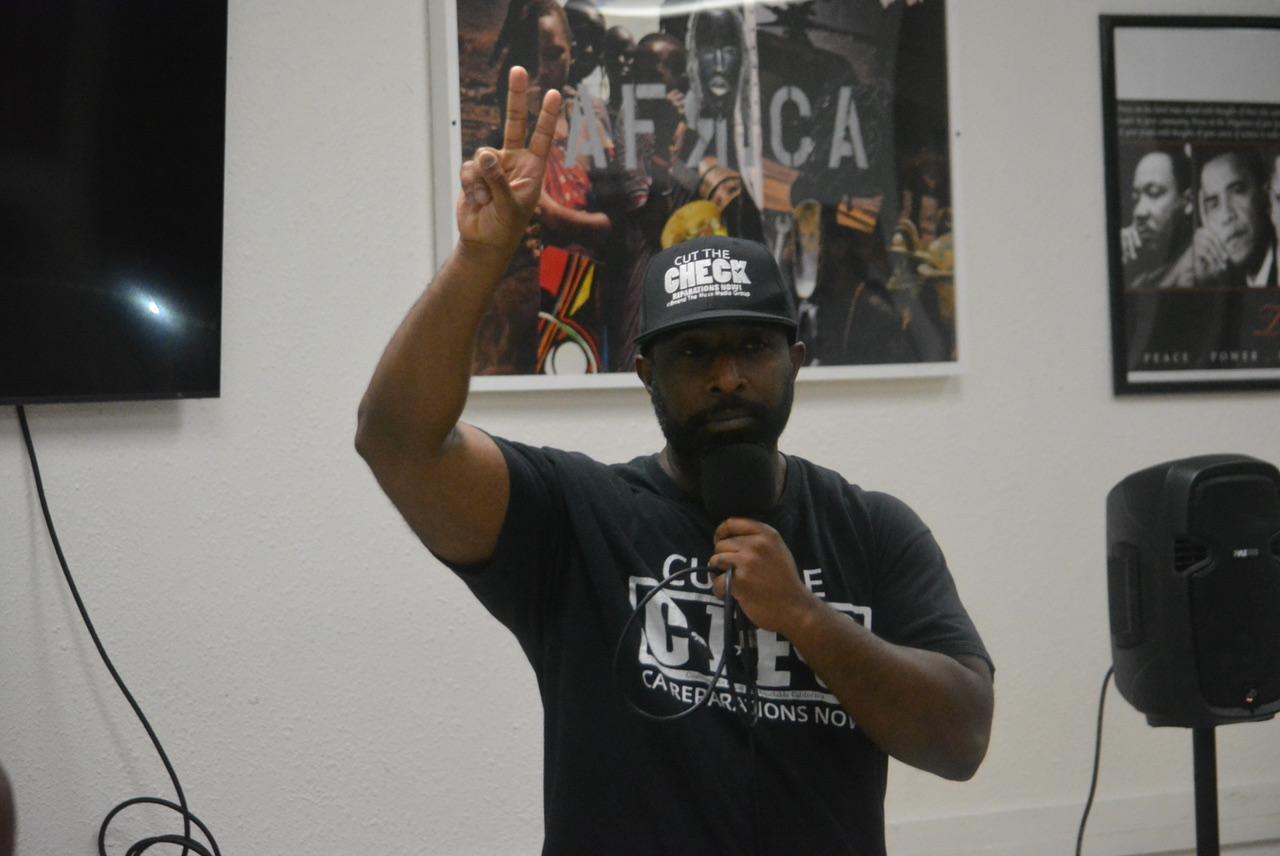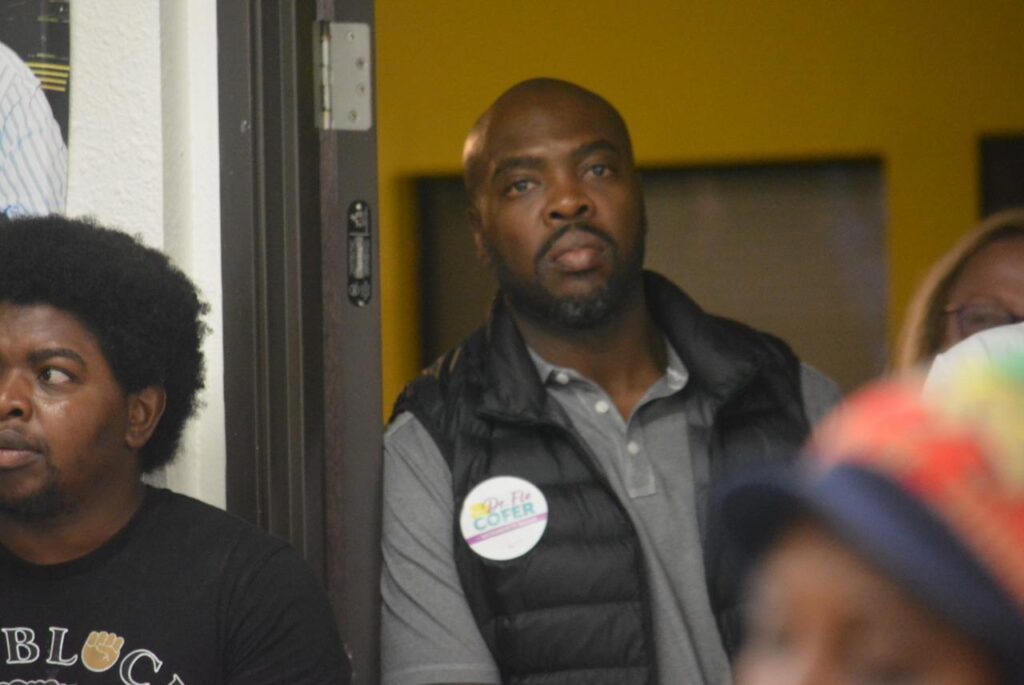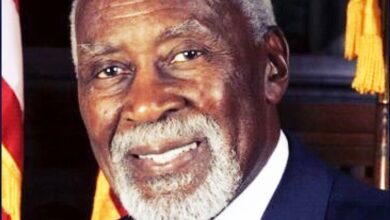
State of Black CA:Black Caucus Members Weigh Next Steps for Reparations in California
By Antonio Ray Harvey | California Black Media

For more than two weeks now, members of the California Legislative Black Caucus (CLBC) have been facing sharp criticisms from frustrated advocates and other Black Californians after the State Assembly failed to bring up two reparations bills for a floor vote on Aug. 31.
On Sept. 14, Assemblymembers Mia Bonta (D-Alameda), Corey Jackson (D-Moreno Valley), and Kevin McCarty (D-Sacramento) participated in the “State of Black California 2024: Listening Session Tour” in Sacramento. During the session they heard from people who said they felt let down that the bills did not pass the Legislature and advance to Newsom’s desk for his consideration.
The three-hour event was held at the Secretary of State’s office building, one block south of the State Capitol. Amid interruptions and disruptions from the attendees during the event, Bonta said she appreciated the feedback.
“I got out of it what I expected. We have a lot of diverse thoughts and opinions about how to proceed,” Bonta told California Black Media (CBM). “It was helpful to hear directly from people without the constraints of hearing rooms and formalities. I heard a lot of frustration and concerns. I also got out of it a call to action, as we shared, to do better and I am certainly committed to doing that.”
On Sept. 12, CLBC member Sen. Lola Smallwood-Cuevas (D-Los Angeles) called-in to Dominique di Prima’s radio show on KBLA 1580 AM in Los Angeles to share her perspective on reasons the CLBC did not to bring the bills to the Assembly floor. She also shared that going forward there needs to be better communications with the community to ensure passage of bills in the future.
“I want to say that the CLBC has laid a strong foundation to build upon. I think what this experience, this dialogue we are in with our community has shown us that we need to address our communication channels,” Smallwood-Cuevas said. “I think we attempted to do that by having the State of (Black) California convening across California.”
The State of Black California Listening Session tour is a community conversation on reparations and the state of the Black community. The tour is an opportunity for the public to learn more about the 2024 legislative report that is an initiative of the University of California, Los Angeles’s Ralph J. Bunche Center for African American Studies, and the reparations package.
In collaboration with the California Black Freedom Fund (CBFF) in partnership with the tour has made stops in San Diego, Santa Barbara, and Fresno. The next destinations for the Listening Session are Oakland on Sept. 28 and Moreno Valley on Oct. 5.
The CBFF is a five-year, $100 million initiative to ensure power building and “movement-based organizations” have the sustained investments and resources they need to eradicate systemic and institutional racism according to their website.
Marc Philpart, the Executive Director who oversees CBFF’s five-year-long initiative to raise and distribute $100 million, was the moderator in Sacramento.
Philpart, who has worked closely with the CLBC and whose organization was the benefactor of $3.5 million in state funds last year, has also been under fire from advocates.
The night before the State of Black California event, Chris Lodgson, a reparations advocate and member of the Coalition for a Just and Equitable California (CJEC) questioned Philpart about allegations that the CBFF had been designated by the CLBC to receive $6 million in state funds, requested by the CLBC, to fund reparations legislation implementation.
(The CBFF granted CBM $25,000 of that money to fund its Capitol Correspondent.)
Lodgson asked Philpart,“What is your relationship to that funding” and whether CBFF has made any attempts to get any of the money.
“No, we don’t have any relationship with that,” Philpart told Lodgson at the meeting.
However, Lodgson asserted that he had a discussion with Smallwood-Cuevas and she confirmed that “there was a plan” to fund CBFF $6 million. Lodgson also shared with Philpart that he contacted Bradford’s office and was told that there was a letter sent to Newsom’s office from the CLBC that requested the Governor to direct $6 million to the proposed California African American Freedmen’s Affairs Agency (CAFAA) and $6 million to CBFF.
In a letter obtained by CBM and dated May 24, the CLBC requested that the state provide $6 million to assist funding efforts related to SB 1403 and direct the remaining $6 million to the CBFF. That CLBC letter stated that the money would be “utilized for community-level outreach and engagement efforts and to provide organizational support essential for the effective implementation of Reparations initiatives.”
“Yeah, there’s a letter with my organization’s name on it but it is not an agreement between our organization and the (Black) Caucus, or the legislature,” Philpart said.
In a telephone conversation with CBM, Philpart said CBFF was “not getting the money” and he “had no idea” what his organization would have been doing in terms of reparations implementation had it received any funds. He added that the CLBC can still decide where the funds could be directed to fulfill what it is intended for.
“They have power. That is their discretion,” Philpart said. “They are lawmakers. and they have done the work to ensure that this money exists for (implementation) and they have decision-making authority over those dollars.”
Jackson said that the CLBC did make a collective decision to fund the agency and CBFF. Since the bills were held up with the expectations that will be brought during the next legislative session, Jackson said there will have to be another conversation among CLBC members about how the $12 million will be allocated.
“We still have to spend the $12 million,” Jackson said. “We have not gathered yet because we are all in our different districts right now to try to see what that $12 million looks like. Does it need to shift because things have shifted? Does our strategy need to shift? Those are the discussions we still have to have.”




